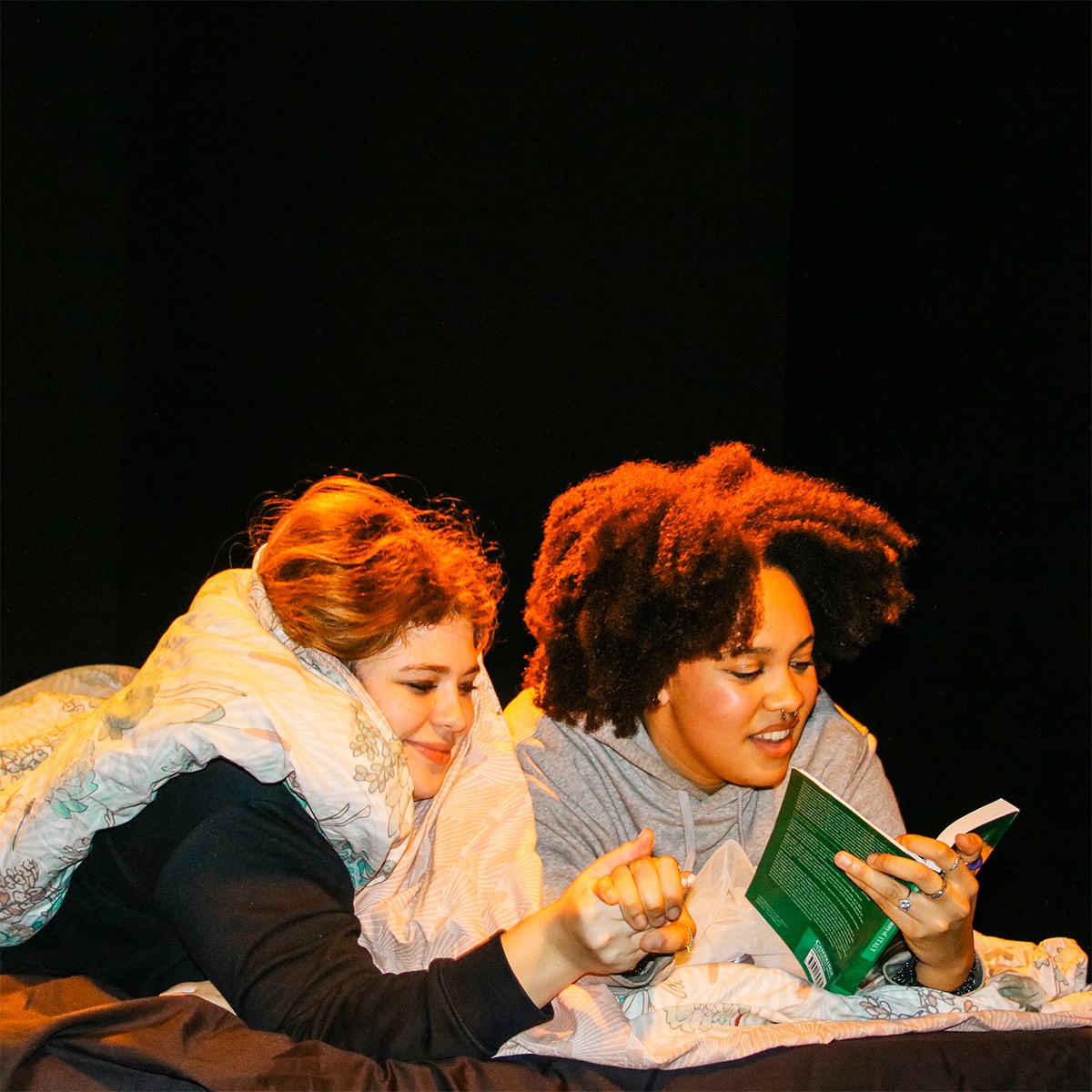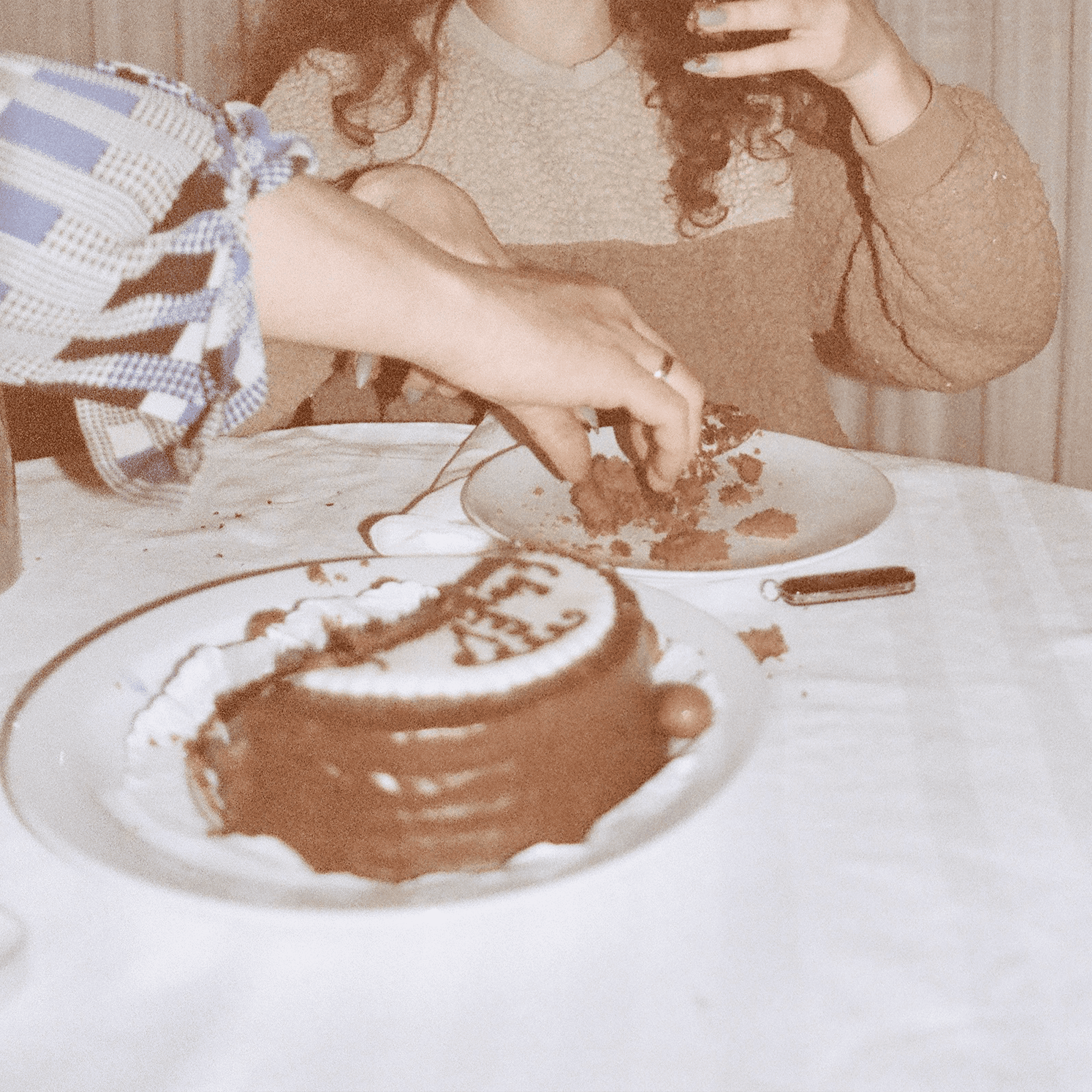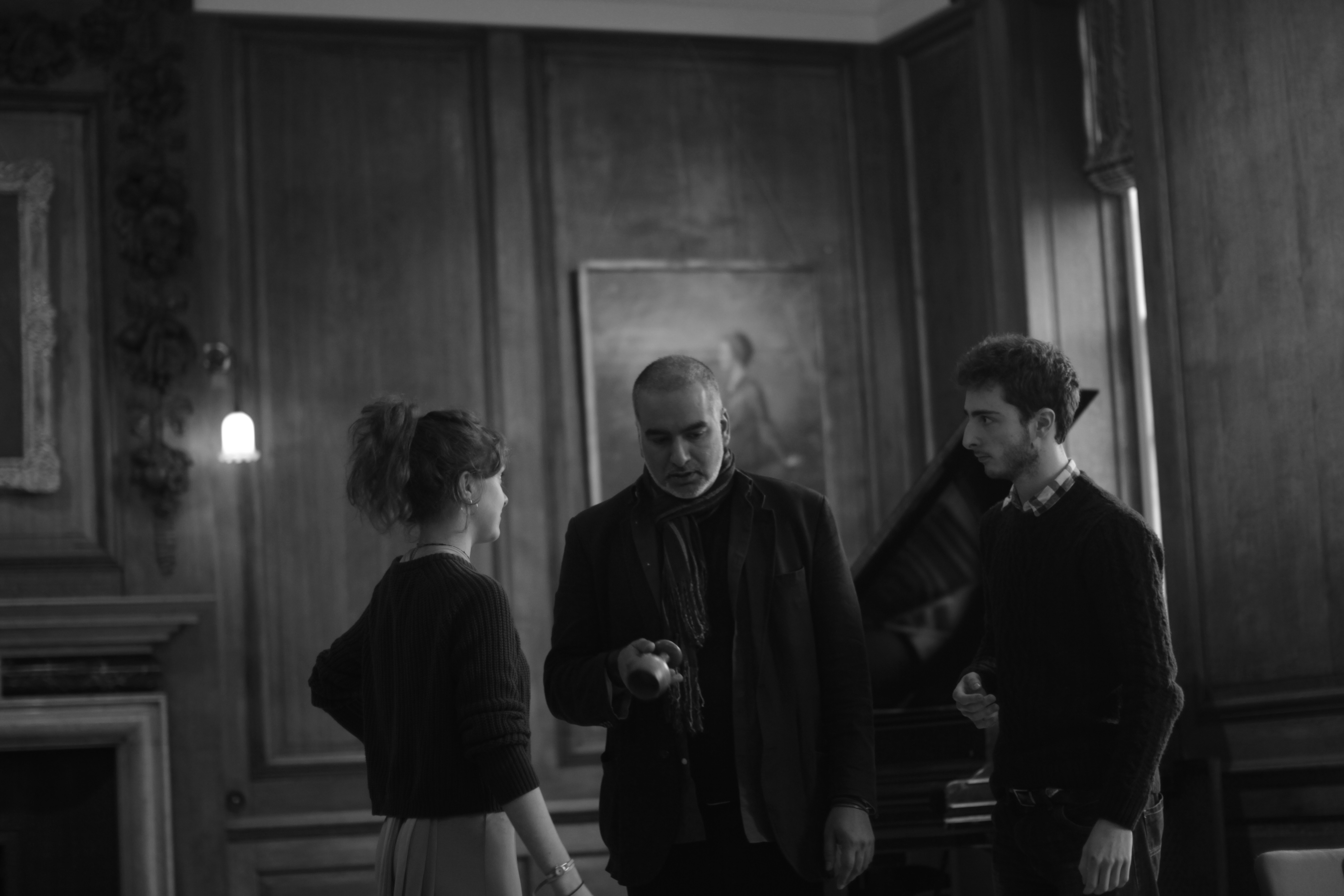
Review: Wishbone
An unfinished Scrabble board, the crumpled duvet of a queen-size bed, a packet of sliced white bread, clusters of spice jars, and a carboard box of kitchen utensils sprawl across the stage of the Burton Taylor Studio, as the curtains rise on Coco Cottam’s new play, Wishbone. So far, not so different from the messy living space of any other pair of twenty-something girls. Except Ti and Ro have just broken up and now have to isolate together. Aware that no audience wants to think about the pandemic for fifty minutes straight, Cottam instead explores questions of agency and circumstance: what happens when two people who’d previously made the other their world are forced to share and inhabit a very small one, and us with them?
The seven-day isolation period lends itself to the play’s episodic structure – a comically dramatic sonic motif and the flashes of deictic information mark the passing of days. This two-hander is brought to life by Lydia Free’s direction as well as compelling performances from Rosa Calcraft and Kaitlin Horton-Samuel. Calcraft’s Ti hums with equal parts desperation and disbelief, confusion and comedy. Her knack for dramatic timing and deft shifts in facial expression riffing off Cottam’s script. The pointed consumption of a jam sandwich, the wailing for a torn hamstring, and smirk at a successful scrabble move all sing with humour. Calcraft is the perfect foil to Horton-Samuel’s Ro, who huffs and puffs her way in and out of frustration, caught in the crosshairs of vulnerability and caught out by the fluctuation of her feelings, tenderness percolating beneath the surface. Much of Wishbone’s emotional force hinges on the chemistry between these two actors: conversations about the likelihood of Love Island success or post-plane-crash cannibalism are laced with sexual tension, subtext, and unpredictability. Are Ti and Ro going to stumble into another argument, or into bed?
Though at times, Wishbone veers a touch too close to cliché, and the – albeit beautiful – Frantic Assembly-inspired opening sequence lacks intention, Free makes use of a talented creative team to thread humour through the entire production. Cleo Coleman’s lighting changes offered a subtle nod to the time of day without removing us from Ti and Ro’s (literal and metaphorical) bubble, whilst Faye Song’s playful animated sequence about Ravioli constitutes one of my favourite vignettes. Moments of dramatic tension are punctuated by hyperbolic interjections of Fleabag-esque choral music, and a rear-projected montage of photographs. The latter summarises the culmination of a messy night out in front of MacDonalds – an all-too-familiar scenario, judging by the laughter from the audience.
This is a production aware of its relatability, and conscious of detail. My only gripe about Wishbone is that at times, I would have liked a touch more. A little more contextual detail from the outset, the shifting emotional dynamics of the final scene grounded more in earlier moments, the contours of Ro’s uncertainty thrown into sharper relief. But that said, Wishbone probes the architecture – the confusion, the indecision, the awkwardness – of a break-up with perceptiveness and heart. It’s a reminder of how the most mundane moments, the most mundane settings can become interesting and fraught when a talented cast and crew are allowed to poke at and play with energetic new writing. After all, a play that leaves you wanting to spend more time in its world, among its characters, has done its job well. ∎
Wishbone was produced by Peach Productions, written by Coco Cottam, and directed by Lydia Free.
Words by Imee Marriott.







